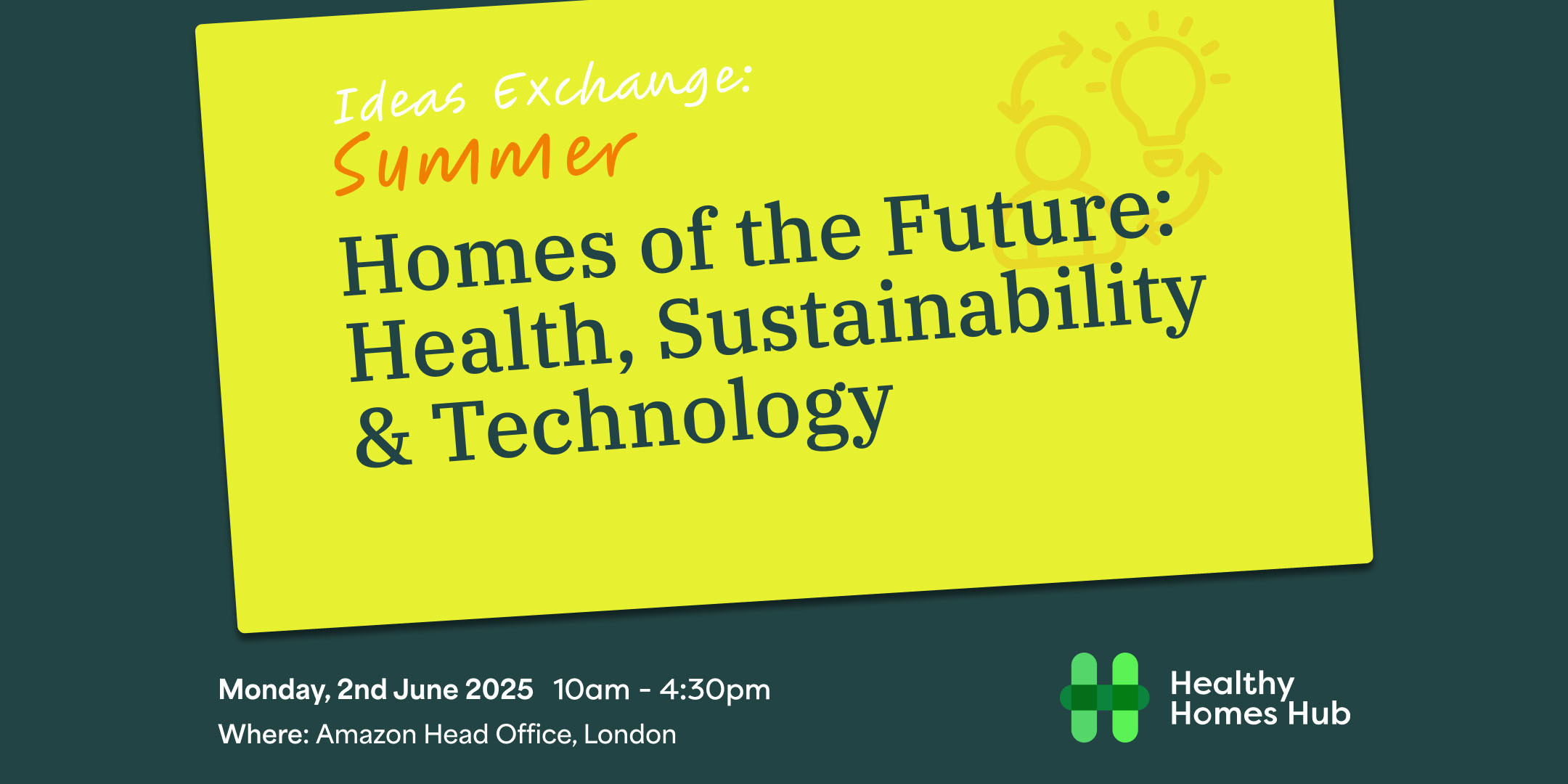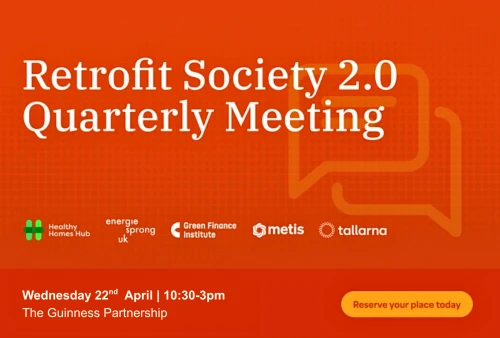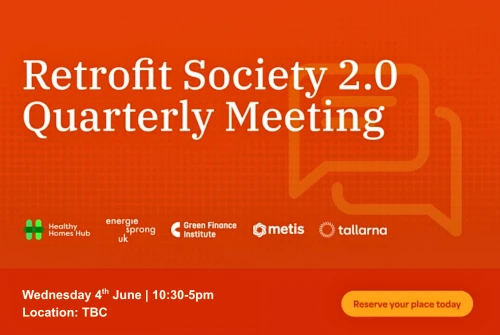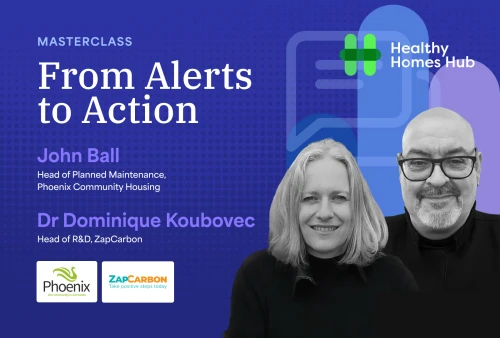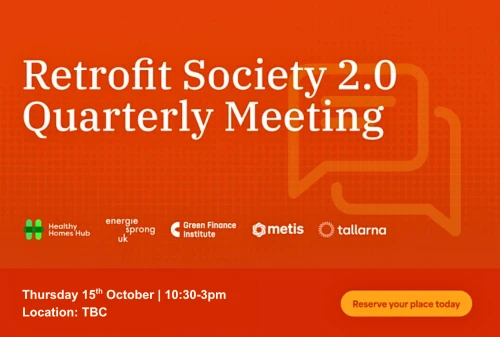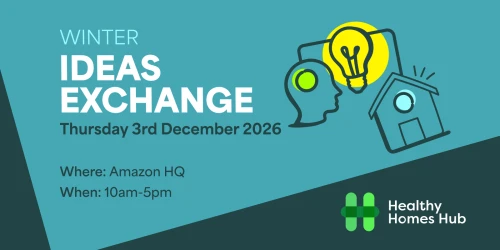Creating Impactful Housing – Health Partnerships
05/06/2025
Trina Chakravarti
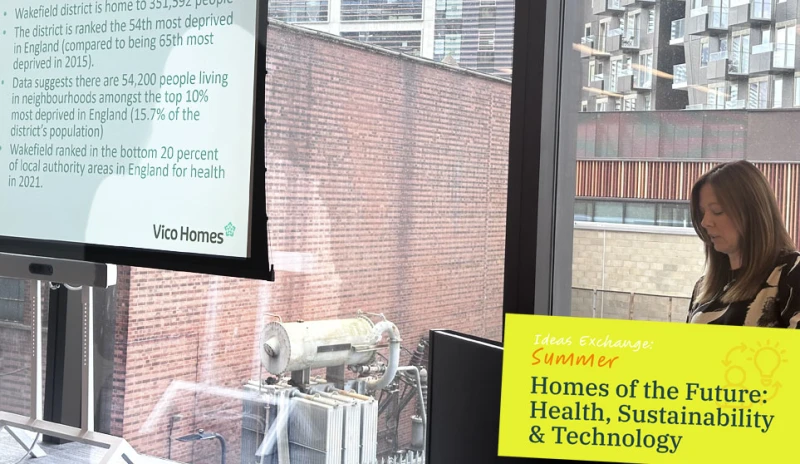
What happens when housing and health teams truly collaborate—not just in principle, but in practice? At the Summer Ideas Exchange, Sarah Roxby and Leanne Brown from Vico Homes shared a compelling story of partnership, purpose, and people-first housing transformation.
Their presentation showed how Vico, a stock transfer organisation based in Wakefield, is placing tenant wellbeing at the heart of its housing operations, working hand-in-hand with local health services to deliver better homes and better lives.
A New Chapter for a Familiar Name
Vico Homes may be a new name to some, but many will recognise its history. Formerly known as Wakefield District Housing (WDH), the organisation became Vico earlier this year, marking a fresh chapter built on the same core values of community, care, and improvement.
As Sarah, Executive Director of Customer and Communities, explained: “The name may have changed, but our mission has not. We’re committed to building strong, healthy communities—and that starts with understanding the real-life challenges our tenants face.”
Why Housing and Health Must Work Together
For Vico, the link between housing and health isn’t abstract. It’s visible in the daily lives of residents—families dealing with damp-related respiratory issues, older people facing social isolation, or tenants struggling to access vital services.
Leanne, Head of Health and Wellbeing, put it simply: “We know that poor housing contributes to poor health. But the reverse is also true—supportive housing can be a powerful intervention for preventing illness and promoting recovery.”
Vico’s work has focused on moving from reactive responses to proactive, preventative partnerships with the local NHS and Integrated Care System (ICS).
Building the Foundations of Partnership
The journey didn’t begin with a huge funding pot or a national pilot. It began with a willingness to listen and test new ways of working.
Sarah and Leanne highlighted several early steps:
Co-locating health professionals within housing teams to improve communication and speed up referrals
Joint training sessions between Vico staff and NHS teams to build mutual understanding
Data sharing protocols, carefully designed to protect privacy while identifying shared priority households
These initiatives built trust between sectors that have historically operated in silos.
Pilot Programmes with Real Impact
One of the most successful initiatives has been the joint commissioning of tenancy sustainment support for people with complex needs. Rather than wait for a health crisis or a tenancy breakdown, Vico and health partners identify at-risk residents early and offer wraparound support.
Leanne shared a story of a resident living with a chronic mental health condition, whose risk of homelessness was escalating. Through the partnership, they were connected with a tenancy coach, a mental health practitioner, and a peer supporter—stabilising the tenancy and improving the resident’s quality of life.
“It’s about stopping the cliff edge,” Leanne said. “Housing provides the foundation for stability. Health services can then step in and deliver the care that sticks.”
Funded by Shared Outcomes
A particularly innovative part of the approach is the use of joint funding. Rather than rely solely on housing or health budgets, Vico has built shared investment models where both parties contribute—because both benefit.
Sarah explained: “We’ve been able to demonstrate that these interventions reduce hospital admissions, lower emergency GP appointments, and keep people in their homes longer. That’s a saving to the health service and a gain for housing.”
This shared-outcomes model is helping unlock new funding conversations and broaden the scope of what social landlords can deliver.
Embedding Wellbeing in the Core Offer
The Vico team stressed that the partnership isn’t just about pilot programmes—it’s about culture change. Their strategy embeds health and wellbeing into the day-to-day work of all frontline teams.
Housing officers are now trained in health signposting, referrals are easier to make, and wellbeing checks are integrated into routine visits.
They’ve also invested in community connectors—a team who work across neighbourhoods to tackle isolation, promote digital inclusion, and connect residents to support.
“It’s about recognising the value of the conversations we already have,” Sarah said. “When a housing officer checks in on a tenant, that’s not just a rent call—it’s a chance to prevent a crisis.”
Outcomes that Matter
Vico’s health and housing partnership is already showing promising results:
Fewer tenancy breakdowns and evictions among high-risk tenants
Improved resident satisfaction in areas with integrated services
Stronger working relationships with GPs, hospital discharge teams, and mental health services
The most powerful outcomes, though, are individual. At the end of the session, Sarah and Leanne shared a personal story of a resident whose life had been transformed by the partnership—moving from crisis and isolation to stability and renewed confidence.
“It’s stories like that,” Leanne said, “that remind us why this work matters.”
Advice for Others Starting Out
Asked what advice they’d give to others looking to build similar partnerships, Sarah and Leanne offered three key reflections:
Start with relationships – Trust between organisations is more important than formal structures in the early stages.
Don’t wait for perfect data – Pilot something small and learn as you go.
Keep residents at the centre – The best ideas come when we listen to the people we serve.
About the Summer Ideas Exchange
The Summer Ideas Exchange, hosted by Healthy Homes Hub and supported by AWS, brings together leaders from housing, health, academia, and technology to share practical innovations and ideas. Vico Homes’ session was a powerful reminder that creating healthy communities doesn’t always require new buildings—it requires new relationships.
Become a member to read this article and more!
Social Housing Providers, Local Government, and Academics can sign up for free to access this article and more.
Already registered? Login Here
Related Content
What Are the Benefits of Being a Member of the Healthy Homes Hub?
Industry Recognition and Networking:
Connect with a thriving network of over 350 housing organisations, including decision-makers, innovators, and leaders. Build partnerships that enhance your professional growth and create lasting business opportunities.
Showcase Your Expertise:
Demonstrate your impact by participating in exclusive case studies, webinars, and events. Highlight your contributions to creating healthier, sustainable homes, reaching a broad audience across the sector.
Influence Policy and Advocacy:
Be part of shaping housing policy through direct engagement with policymakers and advocacy efforts. Stay at the forefront of discussions driving meaningful change in the housing sector.
Access to Market Insights:
Gain access to Healthy Homes Hub’s regular newsletters, expert analysis, and resources. Stay informed about trends, regulations, and innovative practices that affect housing professionals.
Specialised Events and Workshops:
Take part in events like the Immersive Study Tours, offering hands-on learning and networking opportunities. Visit groundbreaking projects and facilities to explore real-world solutions for healthier and more sustainable homes.
Exclusive Tools and Resources:
Only members can upgrade to Housing Sage, a cutting-edge AI assistant tailored to social housing professionals. Benefit from personalised insights, regulatory guidance, and innovative ideas to enhance your operations.
Collaboration Opportunities:
Contribute to Healthy Homes Hub’s mission by sharing best practices, participating in action learning programmes like the Retrofit Society, or co-developing solutions with academic and industry leaders.

